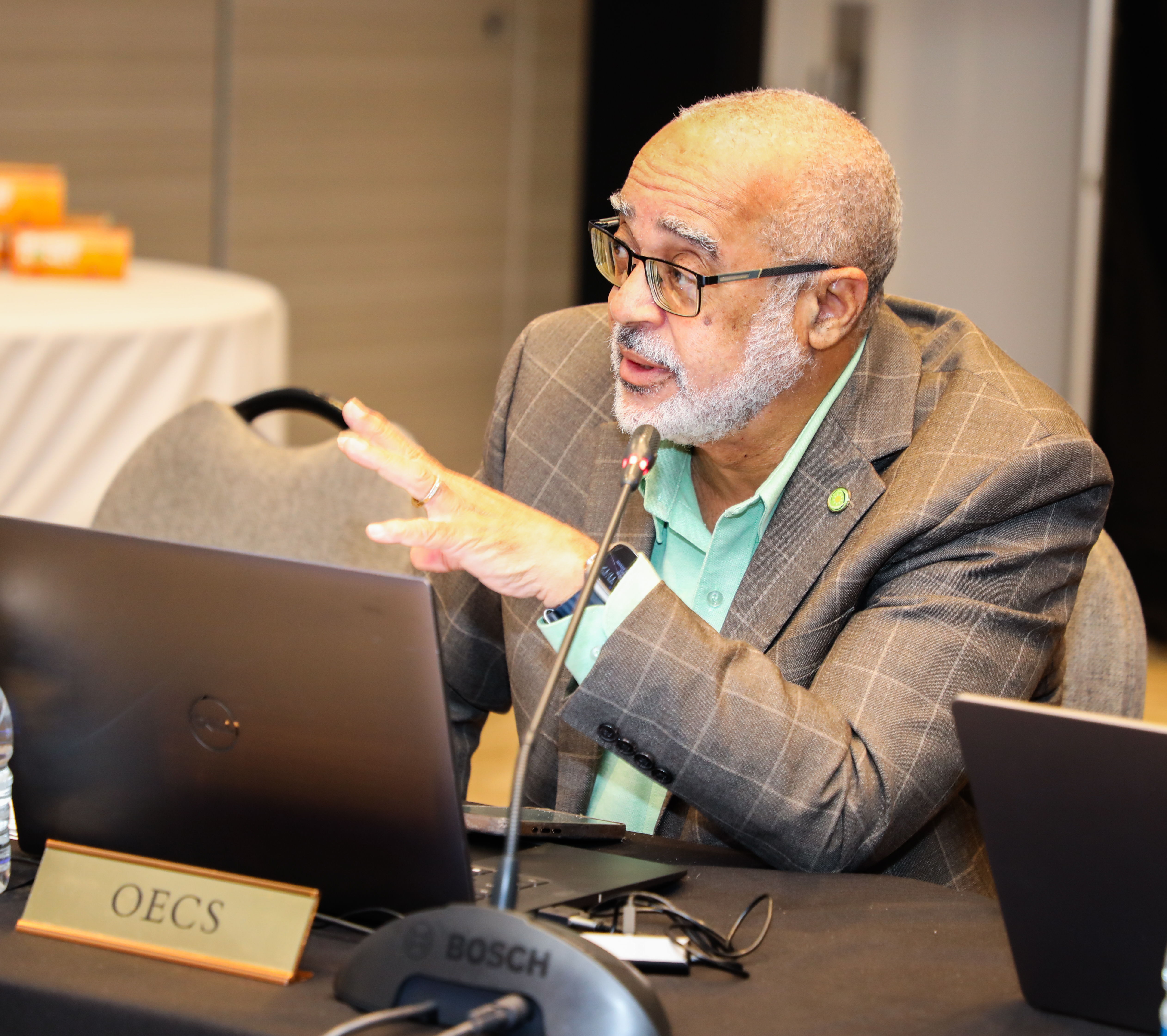9th Meeting of the Council of Ministers of Agriculture
OECS Director General Official Remarks
St. Kitts
October 1, 2025
MOVING FASTER WITH THE FAST
I thank you for the opportunity to address this 9th Meeting of the Council of Ministers of Agriculture. We meet at a time when the global environment is marked by profound uncertainty — conflicts disrupting supply chains, climate shocks intensifying, and new trade restrictions threatening our economic stability. In this context, the task before us is not simply to discuss agriculture, but to chart a course that ensures food sovereignty, resilience, and shared prosperity for our peoples.
1. Major Accomplishments Under the FAST Strategy
Over the past cycle, we have advanced the OECS Food and Agriculture Systems Transformation (FAST) Strategy, conceived as a direct response to external shocks and the vulnerabilities of our net-importer status.
- Transport & Trade: The assessment of the schooner trade has clarified its indispensable role in moving produce across Member States, while identifying reforms - from vessel registries to cold storage - that can modernize this lifeline of inter-island commerce
- Risk Protection: With EU and IICA support, we have laid the foundation for a regional agriculture and fisheries insurance framework. This will reduce reliance on emergency government bailouts and enable quicker recovery from natural disasters
- Youth and Women in Agriculture: The inaugural study tours and climate-smart entrepreneurship workshops in Costa Rica and Saint Lucia have engaged over 40 young people and women, creating the seeds of an OECS Agriculture Forum for Youth and positioning inclusivity at the heart of transformation
- Production Boosts: From potato initiatives in Dominica and Saint Vincent to collaborative efforts on poultry and pork production, we are moving towards coordinated, scalable increases in food supply
2. Sectoral Innovations
We are also broadening the horizons of what agriculture means in our region.
- Apiculture Policy: The OECS has developed its first Regional Apiculture Policy, charting a path from artisanal production to a modern, competitive industry. With potential to raise regional honey output by 50% by 2030, this sector promises both income diversification and environmental co-benefits
- Fisheries & Trade Compliance: The looming NOAA prohibitions on seafood exports from Grenada and Saint Lucia highlight the urgency of a harmonized regional regulatory framework for fisheries. Without this, we risk not only lost livelihoods but reputational harm in wider markets
- Sargassum Response: What once seemed an environmental curse is being reframed through our Integrated Sargassum Management Approach. By treating Sargassum as a resource for fertilizer, feed, construction material, and biofuel, we align ecological restoration with new economic opportunities. This work has already gained international recognition, with the OECS co-leading the adoption of an International Action Plan at the UN Ocean Conference earlier this year
3. Future Directions
As we look ahead, three imperatives stand out:
- Resilience and Sovereignty: We must double down on food production, storage, and insurance systems that shield us from shocks.
- Compliance and Competitiveness: Our seafood and honey exports must not only meet but exceed global standards to preserve access to markets in the US, EU, and beyond.
- Innovation and Inclusion: From AI in agriculture to climate-resilient practices, innovation must be mainstreamed, with youth and women empowered as leaders of the new agricultural economy.
4. Conclusion
Colleagues, the OECS has come a long way in placing agriculture at the center of resilience. Yet the polycrisis we face reminds us that agriculture is not merely an economic sector; it is the frontline of our survival and our sovereignty.
If we remain united - pooling our knowledge, harmonizing our laws, and investing in our people - we can turn our vulnerabilities into a platform for resilient prosperity.
I thank you.
